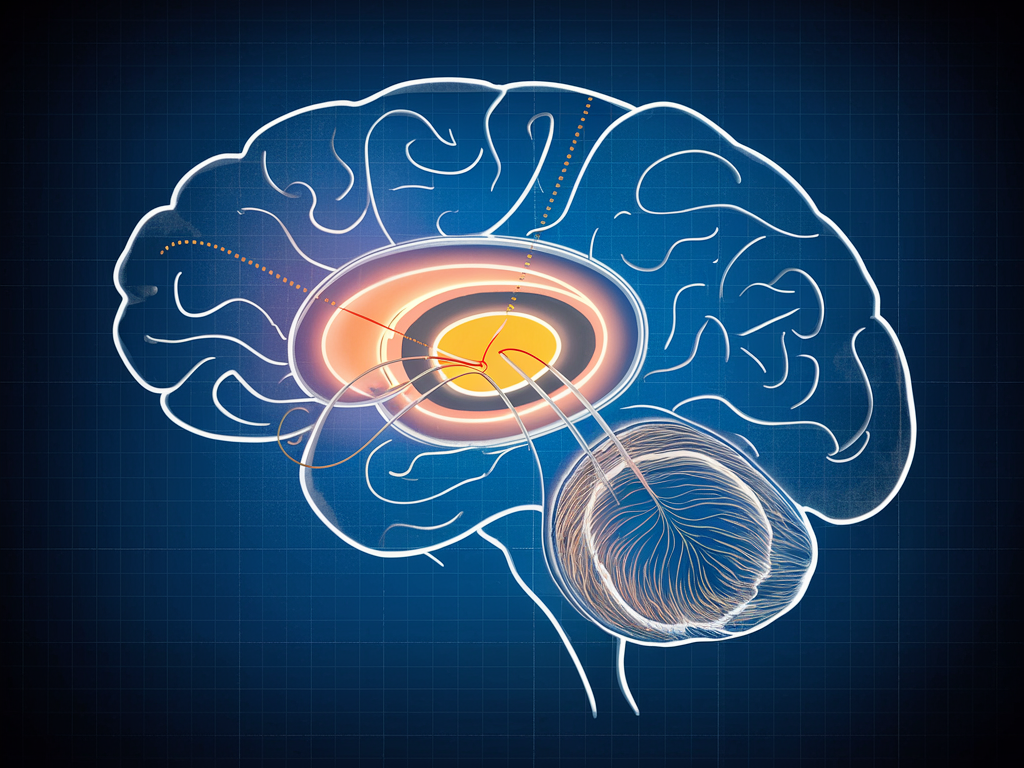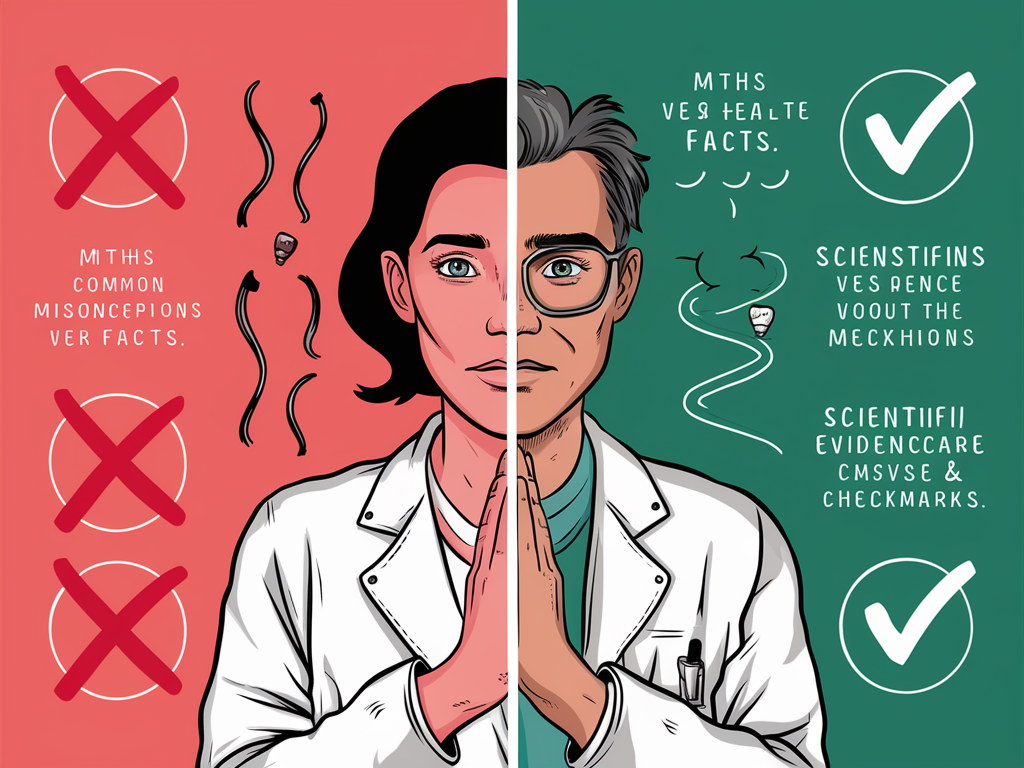Masturbation is a normal part of human sexuality practiced across cultures, ages, and genders. Despite its prevalence, misconceptions abound regarding its effects on physical and mental health. This comprehensive guide examines the potential side effects of masturbation through a scientific lens, separating evidence-based facts from persistent myths.
Self-stimulation is a natural expression of human sexuality that has existed throughout history. Nearly all adults have masturbated at some point in their lives, yet cultural taboos and misinformation continue to surround this practice. These misconceptions often lead to unnecessary worry, shame, and anxiety.
Scientific research consistently shows that masturbation is a healthy sexual behavior with few adverse effects when practiced in moderation. This article aims to provide evidence-based information about potential side effects, distinguishing between factual physiological responses and unfounded myths.

1. Physical Fatigue and Energy Levels
Myth: Masturbation significantly depletes energy, causes physical weakness, and drains vital life force.
Fact: While some individuals may experience temporary tiredness following orgasm, scientific evidence does not support claims of significant or long-term energy depletion.
The brief fatigue some people experience after masturbation is primarily due to the release of prolactin and other relaxation hormones following orgasm. This post-orgasmic state, sometimes called “post-coital tristesse” or resolution phase, is a normal part of the sexual response cycle. Studies show these effects are temporary, with energy levels typically returning to normal within minutes to hours.
Research published in the Journal of Sexual Medicine indicates that sexual activity, including masturbation, can actually boost energy through the release of endorphins and improved circulation. For most individuals, any fatigue experienced is comparable to that following mild physical exercise.
2. Impact on Mental Health
Myth: Masturbation causes depression, anxiety, or psychological distress.
Fact: Scientific research suggests masturbation can actually improve mental health through stress reduction and mood enhancement via endorphin release.
During orgasm, the brain releases dopamine, endorphins, and oxytocin—neurochemicals associated with pleasure and relaxation. These natural compounds can temporarily reduce stress, anxiety, and tension. A 2018 study in the Archives of Sexual Behavior found positive correlations between masturbation frequency and psychological well-being among participants.
However, it’s important to distinguish between healthy masturbation and compulsive behavior. When masturbation becomes excessive or interferes with daily functioning, it may indicate underlying psychological issues that should be addressed by a healthcare professional. Feelings of guilt or shame associated with masturbation typically stem from cultural or religious beliefs rather than the act itself.
3. Effects on Sexual Function
Myth: Regular masturbation leads to erectile dysfunction, premature ejaculation, or genital desensitization.
Fact: There is no scientific evidence linking moderate masturbation to sexual dysfunction. In fact, self-stimulation can help individuals better understand their bodies and sexual responses.
Some concerns have emerged regarding “death grip syndrome”—a non-medical term describing decreased penile sensitivity due to aggressive or unusual masturbation techniques. While this phenomenon lacks formal research, anecdotal reports suggest that varying masturbation techniques and pressure can prevent potential sensitivity issues.
For women, masturbation is associated with multiple benefits for sexual function, including increased arousal, natural lubrication, and orgasmic capacity. Research from the Journal of Sex Research indicates that women who masturbate regularly report higher sexual satisfaction and better communication about sexual needs with partners.

4. Relationship Impact
Myth: Masturbation always harms intimate relationships and indicates dissatisfaction with one’s partner.
Fact: Masturbation can complement a healthy partnered sex life and improve sexual self-awareness.
Sexual health experts generally agree that self-pleasure and partnered intimacy serve different purposes in one’s sexual repertoire. A 2017 study in the Journal of Sex & Marital Therapy found that individuals in committed relationships who masturbated reported equal or higher relationship satisfaction compared to those who abstained.
Masturbation can become problematic in relationships when:
- It consistently replaces partnered intimacy
- It’s kept secret in a way that creates distance or dishonesty
- One partner opposes the practice due to personal beliefs
- It’s associated with content or fantasies that violate relationship boundaries
Open communication about sexual needs, desires, and boundaries remains essential for integrating self-pleasure in a healthy relationship context.
5. Physical Side Effects
Myth: Masturbation causes physical abnormalities, hair growth, acne, or structural changes to genitalia.
Fact: Temporary and minor physical effects may occur but are easily preventable with proper techniques and hygiene.
Potential physical side effects of masturbation include:
- Skin irritation or chafing (preventable with lubricant)
- Minor edema (temporary swelling that resolves quickly)
- Muscle tension or mild soreness
To minimize these effects, healthcare professionals recommend:
- Using appropriate lubricant to reduce friction
- Maintaining good hygiene before and after
- Avoiding excessive force or pressure
- Using clean hands and clean sex toys if applicable
Long-term or serious physical side effects from masturbation are exceedingly rare and typically only occur in cases of extremely frequent or aggressive techniques.
6. Hormonal Changes
Myth: Masturbation permanently alters hormone levels or disrupts endocrine function.
Fact: Masturbation causes only temporary hormonal fluctuations that naturally rebalance within a short timeframe.
During sexual arousal and orgasm, the body experiences normal hormonal changes:
- Increased dopamine during arousal and orgasm (associated with pleasure)
- Oxytocin release during orgasm (promotes relaxation and bonding)
- Elevated prolactin after orgasm (contributes to satisfaction and temporary refractory period)
- Brief testosterone fluctuations (return to baseline quickly)
A study published in the World Journal of Urology demonstrated that while ejaculation temporarily affects hormone levels, these changes are transient and represent normal physiological responses rather than disruptions to hormonal balance. Within hours, hormone levels typically return to individual baseline levels.
7. Addiction Concerns
Myth: Masturbation is inherently addictive and inevitably leads to compulsive behavior.
Fact: While some individuals may develop compulsive patterns, masturbation is not considered physically addictive in the same way as substances.
The concept of “masturbation addiction” remains controversial in the scientific community. The current edition of the Diagnostic and Statistical Manual of Mental Disorders (DSM-5) does not recognize it as a formal diagnosis. However, problematic sexual behavior patterns exist on a spectrum, and some individuals may experience difficulty controlling their masturbation habits.
Signs that masturbation may be becoming problematic include:
- Interfering with daily responsibilities
- Causing physical injury or pain
- Becoming the primary coping mechanism for stress or negative emotions
- Continuing despite negative consequences to relationships or health
For most people, masturbation remains a controlled, pleasurable activity that poses no risk of dependency. Those concerned about compulsive sexual behavior should consult with a mental health professional specializing in sexual health.
8. Impact on Fertility
Myth: Frequent masturbation permanently reduces sperm count and decreases fertility.
Fact: While ejaculation temporarily reduces sperm concentration, this effect is short-lived with no impact on long-term fertility.
Research from the Chinese Medical Journal indicates that sperm concentration may be slightly reduced for a short period following ejaculation, but returns to normal levels within 24-48 hours. For men trying to conceive with partners, abstaining for 2-3 days before ovulation may optimize sperm concentration, but longer abstinence periods do not necessarily improve fertility and may decrease sperm motility.
Interestingly, a 2016 study published in European Urology found that moderate ejaculation frequency (around 21 times per month) was associated with a reduced risk of prostate cancer compared to lower ejaculation frequencies. This suggests potential health benefits rather than detriments to reproductive health.

9. Neurological Effects
Myth: Masturbation damages brain function, causes memory loss, or creates neurological impairments.
Fact: Neurochemical changes during masturbation are normal aspects of sexual response with no evidence of harmful effects on brain function.
During sexual activity, including masturbation, the brain releases neurotransmitters that create pleasure and reinforce natural reward pathways. Dopamine release during orgasm is similar to that experienced during other pleasurable activities like eating or social bonding.
Functional MRI studies examining brain activity during sexual arousal and orgasm show activation in regions associated with pleasure, emotional processing, and sensory integration. These patterns represent normal neurological responses rather than detrimental changes.
A comprehensive review in Frontiers in Psychology found no evidence linking masturbation to cognitive decline, memory impairment, or neurological dysfunction. Claims suggesting such effects typically lack scientific foundation and often originate from historical misconceptions rather than contemporary neuroscience.
10. Cultural and Psychological Perspectives
Myth: Masturbation universally leads to negative psychological consequences like guilt and shame.
Fact: Psychological effects of masturbation are heavily influenced by cultural beliefs, religious teachings, and personal attitudes rather than inherent aspects of the behavior itself.
Cross-cultural research demonstrates significant variation in attitudes toward masturbation. Negative psychological reactions often correlate strongly with cultural messaging rather than inherent effects of the activity. In societies where masturbation is normalized as healthy self-exploration, individuals report fewer negative emotional responses.
Psychologists note that many negative feelings associated with masturbation stem from:
- Religious teachings classifying the behavior as sinful
- Cultural myths about physical or mental consequences
- Family attitudes that discourage sexual self-exploration
- Historical medicalization of normal sexual behavior
Contemporary sex therapy approaches often work to address these internalized messages rather than the behavior itself when negative emotions persist despite current scientific understanding.
Conclusion
The scientific evidence consistently indicates that masturbation is a normal, healthy sexual behavior with few genuine side effects. Most commonly cited “side effects” are either temporary physiological responses or myths rooted in cultural taboos rather than medical evidence.
Healthy masturbation—practiced in moderation and with proper hygiene—can provide numerous benefits including stress reduction, improved sleep, enhanced mood, and better understanding of one’s sexual responses. As with any physical activity, individual experiences may vary, but the overall consensus among sexual health professionals supports masturbation as part of normal human sexuality.
When concerns about masturbation arise, they typically relate to frequency, context, or technique rather than the behavior itself. Individuals experiencing persistent physical discomfort, compulsive behaviors, or significant relationship issues related to masturbation should consult with healthcare providers specializing in sexual health.
Additional Resources
For reliable information on sexual health and wellness, consider these resources:
- The American Sexual Health Association (ASHA)
- Planned Parenthood’s sexual health resources
- The World Association for Sexual Health
- The Society for the Scientific Study of Sexuality
If you’re experiencing concerns about sexual function, compulsive sexual behavior, or relationship issues related to masturbation, consider consulting with:
- A certified sex therapist
- A urologist or gynecologist
- A mental health professional specializing in sexual health
Remember that sexual health is an important component of overall wellbeing, and accurate information is essential for making informed decisions about your body.

